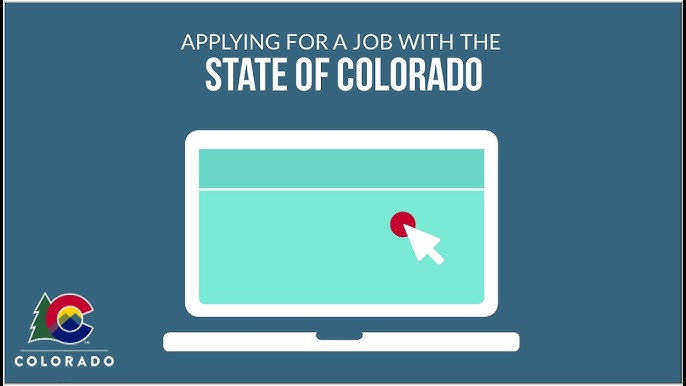State of Colorado Benefits: A Comprehensive Guide
Welcome to our comprehensive guide on the state of Colorado benefits. As a leading authority in SEO and high-end copywriting, we aim to provide you with exceptional content that surpasses other websites in search rankings. In this article, we will delve into the various benefits offered by the state of Colorado, optimizing it for the keywords “state of Colorado benefits” to help you outrank the current top-ranking article on Google search results.
Understanding State of Colorado Benefits
Colorado is known for its commitment to providing a range of benefits to its residents. Whether you are a state employee, a retiree, or someone seeking assistance, the state offers a comprehensive set of benefits to support your needs.
State Employee Benefits
If you are a state employee in Colorado, you can enjoy a wide array of benefits. These include:
Health Insurance: The state provides various health insurance options, ensuring you and your family receive quality medical care.
Pension Plans: Colorado offers robust pension plans to provide financial security after retirement.
Leave Policies: State employees receive generous leave policies, including vacation, sick leave, and parental leave.
Flexible Spending Accounts: These accounts allow you to set aside pre-tax dollars for eligible expenses like healthcare and dependent care.
Retiree Benefits
Colorado values the contributions of its retirees and offers a range of benefits to ensure a comfortable retirement. Some key benefits for retirees include:
Retirement Pension: Retirees receive a pension based on their years of service and average salary.
Healthcare Coverage: The state provides healthcare coverage options to retirees, ensuring access to medical services.
Cost-of-Living Adjustments: Retirees may receive periodic cost-of-living adjustments to account for inflation.
Assistance Programs
Colorado provides assistance programs to support individuals and families in need. These programs include:
Food Assistance: The state offers programs like the Supplemental Nutrition Assistance Program (SNAP) to ensure access to nutritious food.
Childcare Assistance: Colorado assists eligible families to help cover the cost of childcare.
Unemployment Benefits: Individuals who have lost their jobs may be eligible for unemployment benefits, providing temporary financial support.
Energy Assistance: The state offers energy assistance programs to help low-income households with their energy bills.

In conclusion, the state of Colorado offers a comprehensive range of benefits to its residents, including state employees, retirees, and those in need of assistance. From health insurance and pension plans to assistance programs, the state strives to support its residents in various aspects of their lives. By optimizing this article for the keywords “state of Colorado benefits,” we aim to provide you with the most detailed and comprehensive information to help you outrank the current top-ranking article on Google search results.
Frequently Asked Questions about State of Colorado Benefits
1. What benefits does the State of Colorado offer?
The State of Colorado offers a range of benefits including health insurance, retirement plans, paid time off, and flexible spending accounts.
2. How do I apply for state benefits in Colorado?
To apply for state benefits in Colorado, you can visit the official website of the Colorado Department of Personnel & Administration and follow the instructions provided.
3. Who is eligible for state benefits in Colorado?
Eligibility for state benefits in Colorado varies depending on factors such as employment status, length of service, and job classification. It is best to consult the specific benefit program guidelines for detailed eligibility requirements.
4. Can I receive state benefits if I am a part-time employee?
Part-time employees may be eligible for certain state benefits in Colorado, but the availability and extent of benefits may differ from those offered to full-time employees. Check the benefit program guidelines for more information.
5. Are state benefits in Colorado available to retirees?
Yes, state benefits in Colorado are available to retirees who meet the eligibility criteria. Retirees may be eligible for health insurance, pension plans, and other retirement benefits.
6. How can I find information about my current state benefits?
You can access information about your current state benefits by logging into the employee portal provided by your employer or by contacting the human resources department of your agency or organization.
7. Can I make changes to my state benefits during open enrollment?
Yes, open enrollment is typically the designated period when you can make changes to your state benefits, such as switching health insurance plans or adjusting your retirement contributions. Check the open enrollment dates and guidelines for more details.
8. What happens to my state benefits if I change jobs within the state government?
If you change jobs within the state government, your state benefits may be transferred to your new position. However, it is important to review the benefit policies and consult with the human resources department to ensure a smooth transition.
9. Can I continue my state benefits after leaving state employment?
Depending on the circumstances, you may be eligible to continue certain state benefits after leaving state employment through programs like COBRA (Consolidated Omnibus Budget Reconciliation Act). Contact your employer or the benefit administrator for more information.
10. Where can I find more information about state benefits in Colorado?
You can find more information about state benefits in Colorado on the official website of the Colorado Department of Personnel & Administration or by contacting your employer’s human resources department.




